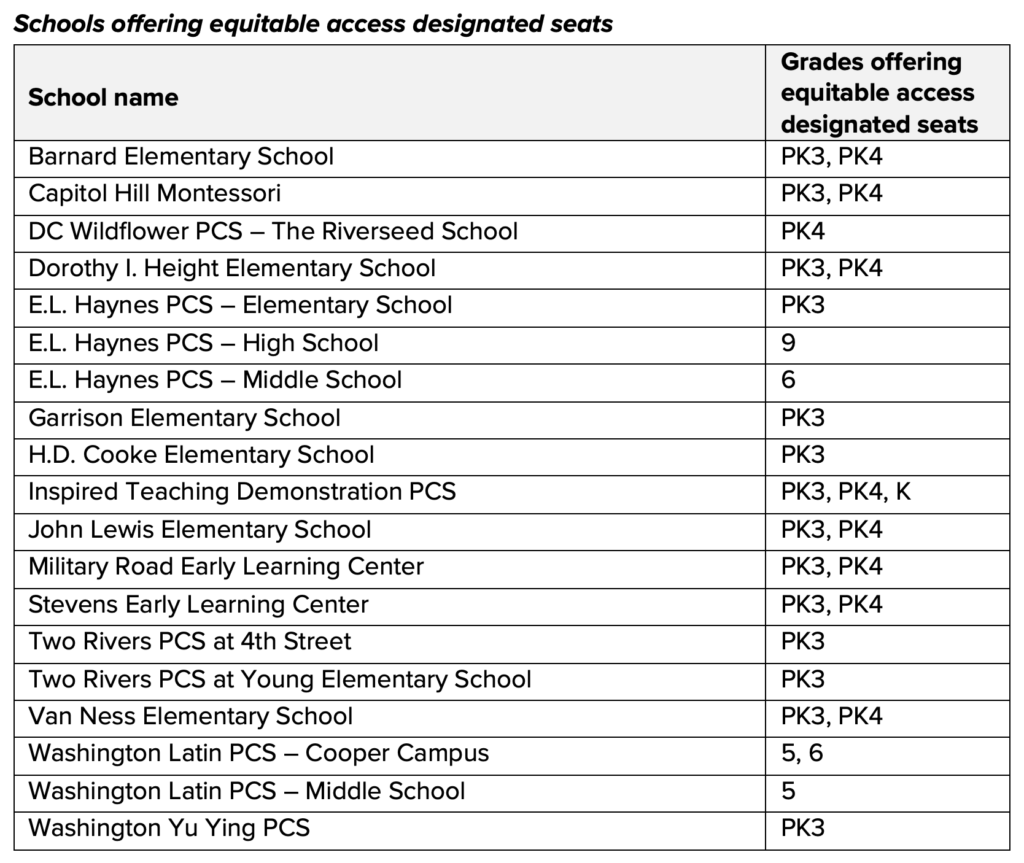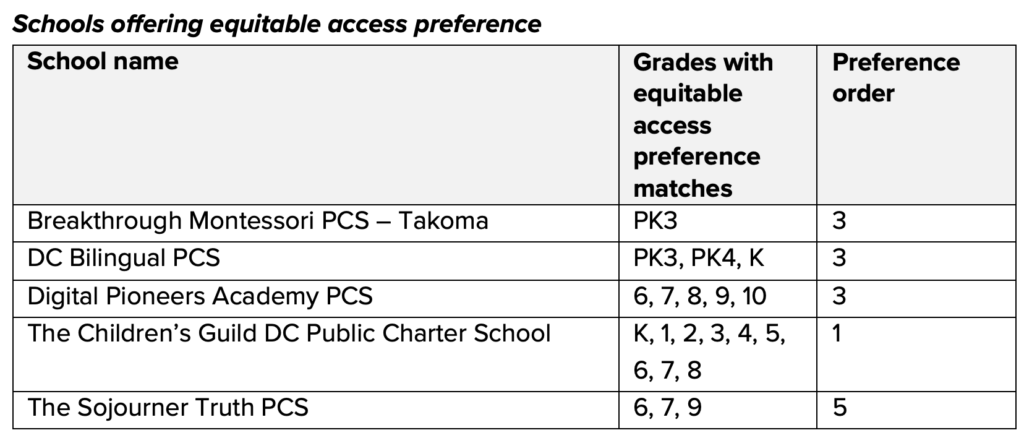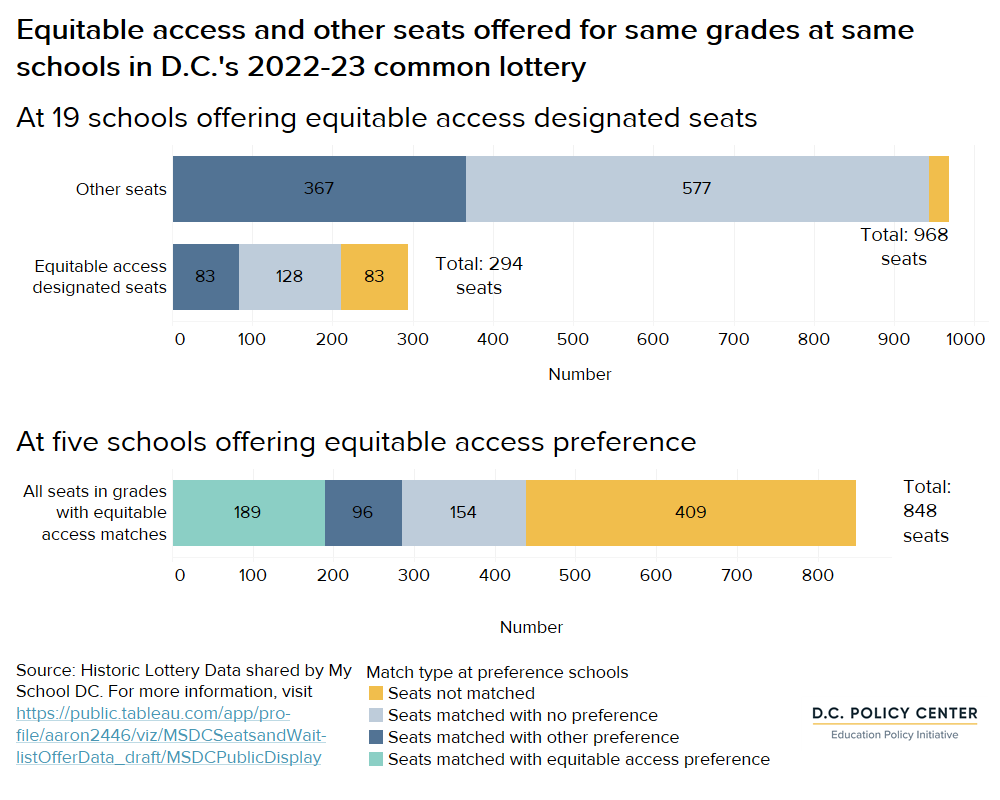Every year, thousands of students and their families apply to D.C.’s common lottery to newly enroll in pre-kindergarten, at a public charter school, or at a DCPS school aside from their in-boundary option. Last week, applicants to the common lottery received their results, which for the first time included an equitable access priority for students who are identified as “at-risk” with 400 applicants matching in this category.1
In total, 24 public charter and DCPS schools2 offered an equitable access option, representing 11 percent of schools participating in the common lottery, either through reserving designated seats (offered by 19 schools) or through adding a preference similar to sibling preference (five schools). Having a preference and designating seats for at-risk applicants are two tools intended to increase access and improve socio-economic diversity at a subset of schools who choose to offer them, as the D.C. Policy Center found in two 2020 studies that analyzed lottery data.3
For school year 2022-23, the 19 schools reserving seats offered a total of 294 equitable access seats across six common entry grades (PK3, PK4, kindergarten, and grades 5, 6, and 9) with 211 students matching in these seats, or an average of 11 students per school, according to data published by My School DC. The majority (66 percent) of equitable access seats were offered in pre-kindergarten grades, a point at which enrollment decisions may have the longest impact on the future composition of a school. Equitable access seats made up 23 percent of all 1,203 slots across the grades offering these designated seats at participating schools. In contrast, last year, when there were no equitable access seats, students designated as “at risk” made up 31 percent of enrollment4 across 17 of these schools that were open in school year 2021-22. In addition to designated seats, 189 applicants matched at five schools through an equitable access preference, or an average of 38 students per school, bringing the total to 400 applicants receiving an equitable access match.


Importantly, more students who are identified as at-risk will be able to apply for the designated seats in the coming months, as the design ensures that the lottery is not the ending point for access. As we have shown in our previous study,5 students who are designated as at-risk are more likely to submit their applications after the lottery deadline. Because the program reserves seats for at-risk students past the lottery, late applicants still have a shot: 28 percent of equitable access seats are still vacant, and can be filled until the beginning of the school year, whereas 98 percent of other seats have been matched and therefore not available.
Endnotes
- Applicants to D.C.’s common lottery are eligible for designated equitable access seats if they are experiencing homelessness, in the District’s foster care system, receiving TANF or SNAP benefits, or overage in in high school by one year or more.
- Two additional schools did not offer these seats at the time of the lottery, but have a waitlist for equitable access seats and may choose to offer seats before the school year begins.
- Coffin, C. 2020. At-risk priority in D.C.’s common lottery: Potential implications for access and diversity. D.C. Policy Center. Retrieved from https://www.dcpolicycenter.org/publications/at-risk-priority/
- Estimated with OSSE UPSFF enrollment.
- Coffin, C. 2020. At-risk application patterns in D.C.’s common lottery. D.C. Policy Center. Retrieved from https://www.dcpolicycenter.org/publications/at-risk-applications/
